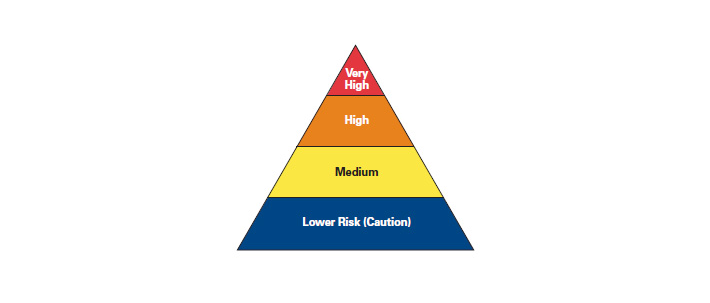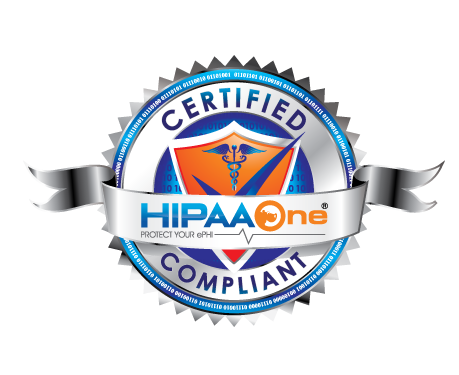


According to the US Centers for Disease Control and Prevention (CDC), the virus is thought to spread from person to person and primarily between people who are in close contact with one another. Infection is believed to spread via respiratory droplets produced when an infected person coughs or sneezes.
According to the Occupational Safety and Health Administration(OSHA) Risk Pyramid for Pandemic Influenza, the COVID-19 and Occupational Risk falls into these four categories:
-
Very High Exposure Risk – Healthcare employees performing aerosol-generating procedures on known or suspected COVID-19 patients, as well as those healthcare employees collecting or handling specimens of suspected patients
-
High Exposure Risk – Healthcare delivery and support staff exposed to known or suspected COVID-19 patients, as well as medical transport staff
-
Medium Exposure Risk – Employees with high-frequency contact with the general population, e.g., schools, transportation, and high volume retail.
-
Lower Exposure Risk – Employees who have minimal occupational contact with the general public and other co-workers
At TRISTAR, we recognize that a number of our clients are in industries that could be considered high and moderate risk. We are actively following the World Health Organization (WHO), the CDC, OHSA, and local state health facilities, and we recommend that all our clients monitor these sites as well. There is much more to learn about the transmissibility, severity, and other features associated with COVID-19 as the outbreak investigation continues. Your business continuity plan should be based on the evolving guidelines and advice from these agencies.
As an employer, we encourage you to pass on CDC recommendations to all employees to help prevent the spread of COVID-19:
-
Avoid close contact with people who are sick
-
Stay home when you are sick
-
Avoid touching your eyes, nose, and mouth
-
Cover your cough or sneeze with a tissue, and be sure to throw it in the trash immediately
-
Clean and disinfect frequently
-
Wash your hands regularly and often
What Should I Do if I Suspect an Employee Has Been Exposed or Infected with COVID-19?
If you suspect an employee has been exposed, instruct the employee to stay home and not come to work. You should advise the employee to contact their health care professional if they have symptoms or have come in contact with a person who is known to have COVID-19. The employee should also tell their healthcare provider about any recent travel to areas where COVID-19 is spreading.
If your health care plan offers your employees telemedicine, the employees may want to consider that option. Most cases would be managed like any other flu or respiratory illness.
How is COVID-19 Diagnosed?
Healthcare providers can determine if other causes can explain employee's signs and symptoms or if there is reason to suspect they may have COVID-19. If laboratory testing is appropriate, the healthcare provider will work with health officials and the CDC to collect and test any clinical specimens for diagnosis.
The CDC's Information for Laboratories webpage provides detailed information and interim guidelines for collecting, handling, and testing clinical specimens from patients under investigation and also provides laboratory biosafety guidelines for handling and processing specimens associated with COVID-19 infection.
What Should I Do if I Believe an Employee Has Been Infected with COVID-19 in the course and scope of their work?
If you reasonably believe the employee was exposed to COVID-19 in the course and scope of their work, please report the claim immediately. TRISTAR is committed to investigating each COVID-19 claim on a case by case basis. Our seasoned claims examiners will obtain medical evidence, and we will carefully evaluate all factors before making any claim compensability decisions. TRISTAR's medical director, Dr. Michael Wald, will be providing guidance to the TRISTAR claim and case management staff. For compensable cases, our medical case management staff is available to assist the injured worker in navigating his/her medical treatment plan with the treating medical professionals and working with our claim staff to return the employee to work when appropriate.
A number of our clients have inquired as to the availability of telemedicine for any case determined to be compensable. Telemedicine can be a follow-up treatment option, especially if the treating provider feels that it is an appropriate form of care and that it can help isolate the patient. TRISTAR does have a telemedicine option if you are considering it for possible work-related exposures. We have partnered with Concentra to offer telemedicine for Workers' Compensation clients. For more information, call TRISTAR at 1.888.558.7478.
TRISTAR recommends the following links to information and updates on COVID-19:
-
Occupational Safety and Health Administration (OSHA): https://www.osha.gov/SLTC/covid-19/
-
Centers of Disease Control and Prevention (CDC): https://www.cdc.gov/coronavirus/2019-ncov/cases-updates/cases-in-us.html
-
World Health Organization (WHO): https://www.who.int/emergencies/diseases/novel-coronavirus-2019





